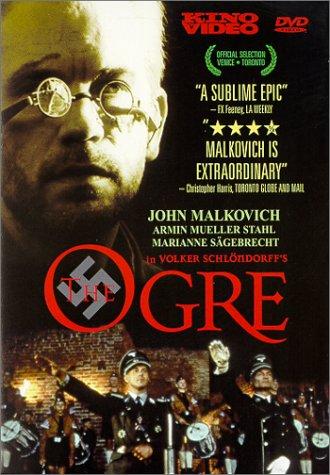
| None | Light | Moderate | Heavy | |
|---|---|---|---|---|
| Language | ||||
| Violence | ||||
| Sex | ||||
| Nudity |
Content:
Moderately moral worldview of mixed-up main character, a nominal Roman Catholic, who eventually finds the beginnings of redemption; no foul language but minor references to fornication, one scene with some gross bathroom humor & gross visual references to animal dung; moderate violence, mostly images of battles during war, hunting animals, images of dead animal pelts, boy accidentally burned by bazooka during military academy training, accidental arson in a Roman Catholic chapel by some rebellious boys in a Catholic school, & little girl attacked by some man off-screen; brief shot of depicted premarital sex; upper male nudity in school for Hitler Youth & woman in underwear; alcohol use; smoking; strong pagan characters who are eventually rebuked; minor attacks on Roman Catholic clergy, who are shown to be slightly cruel; and, child falsely accuses the wrong man of hurting her, Nazi racial theories presented but rebuked, man gets caught up in Hitler Youth Movement but eventually realizes the truth, & references to “Fate.”
More Detail:
John Malkovich plays Abel in this movie. Abel narrates the story. First, Abel tells about his experiences as a boy in a Roman Catholic School during the year 1925. He’s friends with the obese son of the school janitor, but gets into trouble with the priests. At night, the two boys sneak into the pantry, where the janitor’s son, Nestor, eats while Abel reads a book about French trappers in Canada. One day, a childish prank leads to a fire, and Nestor dies trying to put it out. In a fit of rebellion, Abel had prayed for the school to be burned down. In narration, Abel says that he decided Fate is real and that “I would be protected by Fate while others passed into the void.”
The story then skips ahead to 1940 in France, where Abel has become an auto mechanic. Abel reports he now has a mistress, and there are a couple scenes of her in her underwear in his apartment, including a brief shot of them during and after intercourse. On the other hand, however, Abel befriends the children around his shop, taking their photos and joking with them. He befriends a little girl and gives her two rides back to her house after school. After one of the rides, however, he hears her scream for help. He goes to check out what happened and finds the girl lying on some rubble and crying, “He hurt me.” He tries to comfort her, but the police arrive and think he was the one who attacked her. A judge sentences him to the Army because France needs soldiers to fight Nazi Germany.
The movie then jumps to Abel in uniform. While he is helping to serve a fancy dinner in the open air to his ineffectual commander, the Nazis arrive and take them all prisoner. While chasing a pheasant during work detail one day, he slips into the woods and finds a small isolated cabin. Falling asleep, he wakes up to see a strange, funny sight – there’s a large moose opening the cabin door! Abel pets and feeds the moose. He narrates that he often returned to the cabin to feed the moose and pretend to be a Canadian trapper.
One day at the cabin, a Nazi soldier catches him there, but is amused by Abel and hires him to be a servant at the nearby hunting lodge of the infamous Goering, a disturbed maniac. Eventually, Abel becomes a servant at a Nazi military academy in a German castle, where he is put in charge of rounding up boys in the countryside to become part of the Hitler Youth Movement. Although the parents in the town call him “The Ogre,” he has a genuine affection for the boys in the academy. As the Russian troops move in for the kill, Abel discovers a delirious boy in prison garb, a Jewish refugee who was part of a forced death march from one of the concentration camps. Realizing the truth about the war, Abel must decide whom will he serve: the dying Nazi regime or the children he loves.
Wonderfully shot and acted, THE OGRE is the first excellent movie to be released in the United States in 1999. It has only a few minor moral problems. Although there is no foul language (only a scene with some minor bathroom humor and some gross references to animal dung), the beginning of the movie does have two brief scenes of Abel’s relationship with an unmarried woman. Also, the Roman Catholic clergy in Abel’s school are shown to be slightly cruel, and Abel’s spiritual life there is mostly nonexistent. Finally, although Abel eventually rebukes Nazi ideology, beginning to repent and find a glimmer of redemption, the early scenes at the hunting lodge and at the Hitler Youth academy may seem quite attractive to impressionable minds, especially young ones.
THE OGRE’s bittersweet ending is an emotional roller-coaster filled with visual treats that may haunt the memory of many who see it, including moral people looking for a good story about the wages of sin and one man’s need for redemption. Hopefully, this movie will receive a better venue than a small art house release, so that more people can see it on a big screen in all its glory.


 - Content:
- Content: 

